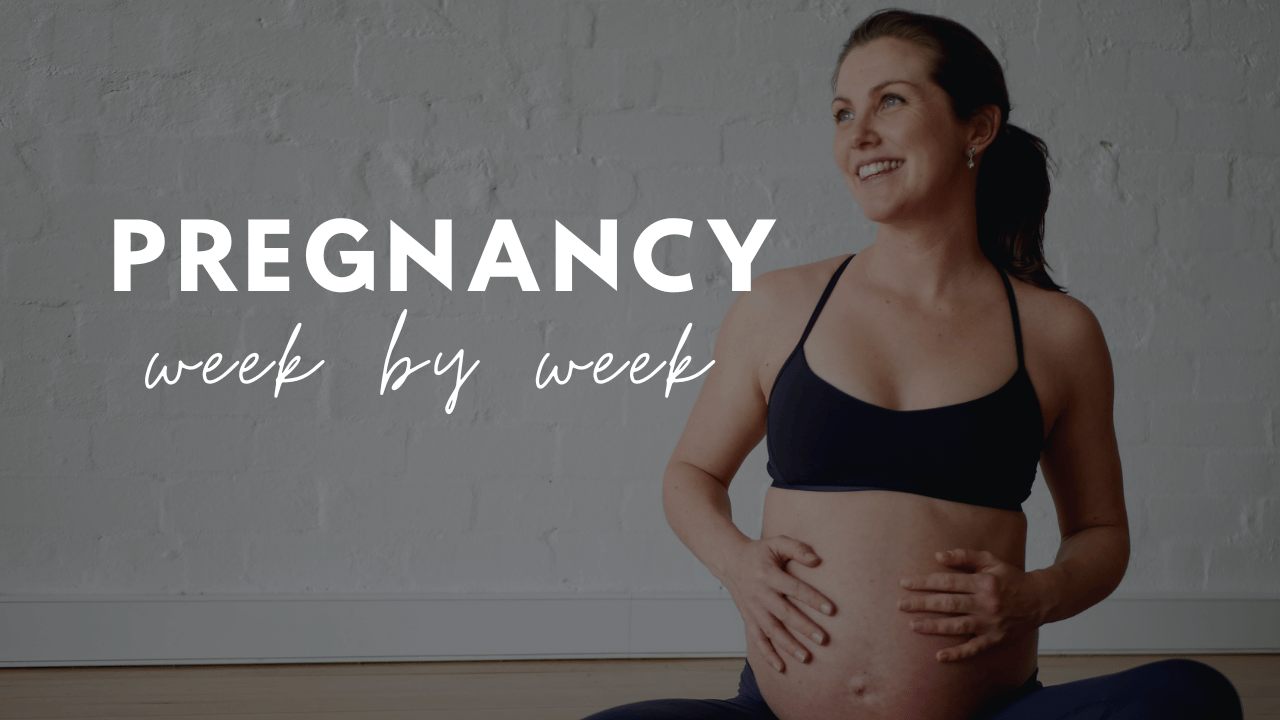How to Reduce Swelling in My Ankles During Pregnancy?
Reduce Swelling in Ankles During Pregnancy
In this video, I'm going to discuss practical tips for reducing swelling in your ankles during pregnancy, helping you feel more comfortable as an expecting mom.
So how do you reduce swollen ankles?
Short Answer: Swelling is normal (70-80% of pregnancies) - reduce it with compression, elevation, hydration, movement, and salt control.
Call your OB if sudden, one-sided, or with headache/hand swelling.
Why Ankles Swell
1. ↑ Blood volume (+50%) + ↑ Pressure from uterus → fluid leaks into tissues
2. Worse in 3rd trimester, heat, standing, or high salt
3. Not dangerous unless sudden or asymmetric (preeclampsia sign)
Top 10 Proven Ways to Reduce Swelling
1. Elevate Legs
3. Stay Hydrated
10-12 cups water/day (add lemon/cucumber)
Why It Works: Dilutes sodium, boosts circulation
4. Move Every Hour
5-min walk or ankle circles (20 each way)
Why It Works: Pumps fluid back to heart
5. Sleep on Left Side
Use pregnancy pillow to avoid right-side pressure
Why It Works: Improves kidney drainage
6. Cool Water Soaks
Soak feet in cool (not ice) water 10 min
Why It Works: Constricts blood vessels
7. Reduce Salt
<2,300 mg/day - skip processed foods, use herbs
Why It Works: Less fluid retention
8. Magnesium-Rich Foods
Spinach, almonds, avocado, dark chocolate
Why It Works: Natural diuretic
9. Avoid Heat
Stay in AC, wear breathable shoes, avoid hot baths
Why It Works: Heat worsens swelling
10. Prenatal Massage
Focus on legs/feet (certified therapist)
Why It Works: Lymphatic drainage
Red Flags-Call OBGYN Same Day
1. Sudden swelling in hands/face
Possible Cause: Preeclampsia
2. One leg only + pain/redness
Possible Cause: Blood clot (DVT)
3. Headache + vision changes
Possible Cause: High blood pressure
4. Swelling + decreased urine
Possible Cause: Kidney issue
What NOT to Do
1. Avoid Diuretics (“water pills”)
Reason: Unsafe in pregnancy
2. Avoid Tight shoes/socks
Reason: Worsens circulation
3. Avoid Standing >1 hr
Reason: Increases pooling
4. Avoid High heels
Reason: Strains calves
Edema
Swelling in the ankles, also known as edema, can be uncomfortable and concerning. It's a common issue many women face during pregnancy, but why does it happen in the first place?
Well, it's mainly due to increased blood volume and hormonal changes that cause your body to retain more water.
As your uterus expands, it puts pressure on your blood vessels, which can cause fluid to leak into your tissues.
Additionally, your growing baby can also put pressure on your pelvic veins, reducing blood flow back to your heart and causing fluid to build up in your legs.
Underlying Issues
It's essential to understand that edema can be a sign of an underlying issue, so it's crucial to discuss any concerns with your healthcare provider.
However, in most cases, swelling in the ankles is a normal part of pregnancy. The good news is that there are many ways to manage and reduce it.
Swelling can also be aggravated by factors like heat, humidity, and excessive standing or sitting.
Practical tips
1. Stay Hydrated
My first tip is to make sure you're drinking plenty of water. It might seem counterintuitive to drink more water when you're feeling puffy, but staying hydrated can help flush out excess fluids and reduce swelling.
Aim to drink at least eight glasses of water a day, and make sure you're avoiding sugary drinks that can dehydrate you further.
2. Elevate Your Feet
Tip number two is to elevate your feet whenever you can.
This can be as simple as propping them up on a pillow while you're watching TV or resting with your feet on a stool while you're working.
Elevating your feet can help reduce swelling by improving blood flow.
3. Watch what You Eat
My third tip is to incorporate potassium-rich foods into your diet.
Potassium helps balance out sodium in your body, which can help reduce water retention.
Some great sources of potassium include bananas, avocados, and sweet potatoes.
4. Exercise
Tip number four is to do some simple ankle exercises.
One exercise you can try is rotating your ankles in a circular motion, first clockwise and then counterclockwise. This can help improve blood flow and reduce stiffness.
5. Compression Stockings May Help
My final tip is to wear compression stockings.
These stockings can provide gentle pressure that helps push fluid back up towards your heart, reducing swelling in your ankles.
Compression stockings are especially helpful if you have a job that involves standing or sitting for long periods.
They come in different styles and pressures, so it's essential to consult with your healthcare provider to find the right one for you.
In addition to these five tips, there are many other ways to reduce swelling in your ankles during pregnancy.
Watch My Video
Today I will be showing you some techniques you can use to help reduce the risk of your ankles swelling.
Please make sure you chat to your doctor as this could be a more serious health matter that needs addressing.
I want you to watch my short 3 minute video above where I provide you with some actionable and easy to do exercises for your ankles.
When Do Feet Start Swelling During Pregnancy?
You will likely notice your feet and ankles swelling around week 21 to week 27 of pregnancy. From this point onwards you will likely experience swelling until you give birth.
When to See Your Doctor
While swelling in the feet is a normal part of pregnancy; there can sometimes be a more serious problem associate with this swelling.
One of these problems is called preeclampsia. This is a condition that can develop during pregnancy and causes dangerously high blood pressure.
Call your doctor if you notice:
- Dizziness or blurred vision.
- Sudden swelling of your hands, feet, face, or around your eyes.
- Confusion.
- Swelling that gets dramatically worse.
- A severe headache.
- Difficulty breathing.
If you notice a lot of swelling this early on, especially if accompanied by other symptoms such as dizziness, headaches, or bleeding, please call your doctor.
What Causes Swollen Ankles and Feet?
When you are pregnant, edema occurs when body fluids increase to nurture both you and your baby.
As a result, these fluids accumulate in your tissues due to increased blood flow and pressure of your growing uterus on the pelvic veins and your vena cava.
Swelling in the First Trimester
You will quickly learn how pregnancy hormones can wreak havoc on your body. The ever-increasing levels of the hormone progesterone slow your digestion down.
This can cause abdominal bloating. You may notice a bit of puffiness in your hands, feet, or face, but not much.
Swelling in the Second Trimester
This swelling is due to the increasing volume of blood and fluids in your body. Your blood volume increases by about 50 % during the course of your pregnancy.
The benefit of this is to soften your body and prepare it for giving birth. This extra fluid will rapidly decrease after your baby is born.
Swelling in the Third Trimester
The third trimester is the most common time to experience swollen feet. Your body is continuing to build its supply of blood and fluids, which can contribute to swelling.
Other factors that cause swelling in the feet are:
- Increased caffeine intake.
- Hot weather conditions.
- Not drinking enough water.
- Standing on your feet for long periods of time.
- Dietary imbalances.
How Can I Reduce Swelling in My Ankles during Pregnancy?
I want you to start by watching my video that will give you some good exercises you can do at home. Also, here are some tips to help you.
1. Reduce Sodium Intake
You may be able to reduce swelling during pregnancy by limiting your sodium (or salt) intake. Salt makes your body hold on to extra water. Be sure to check with your doctor as for some pregnant women, they need to increase their levels of sodium.
2. Reduce Caffeine Intake
Drinking too much caffeine can also make swelling worse. Caffeine is a diuretic, which causes you to pee more, which then makes your body think it needs to hold on to fluid.
3. Increase Potassium Intake
Being deficient in potassium can also make swelling worse, as potassium helps your body balance the amount of fluids it holds onto.
4. Stay Hydrated
Drink more water will help. If your body thinks you're dehydrated, it will hold on to even more fluid to try to compensate.
5. Stay cool
Avoid vigorous exercise outdoors in the heat. Exercise inside as this can help keep you cool and reduce swelling.
6. Walk
I loved walking when I was pregnant and for good reason. Going for walk a couple times a day can help improve your circulation, which helps reduce swelling.
7. Wear comfortable shoes
Wearing comfortable shoes is key to reducing foot swelling, as well as to preventing hip and back problems that can arise as your center of gravity shifts and your weight increases.
8. A Massage May Help
Massage helps circulate the fluids that tend to accumulate in your feet, which will in turn reduce swelling.
9. Sleep on your left side
Sleeping on your left side when possible can improve blood flow, which reduces swelling of the feet.
The Takeaway
It is important to know that swelling in your ankles is a very common side effect of pregnancy. But if you experience sudden or severe swelling, it's important to call your doctor, as this may be a sign of something more serious.
Normal swelling = manage with elevation + compression + movement.
Sudden or one-sided = call OB.
Most swelling resolves 1–2 weeks postpartum.
Tip: Sleep with legs elevated + compression socks overnight = biggest morning difference





